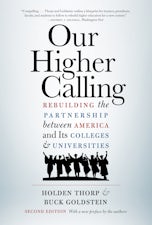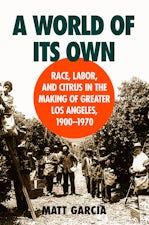Mixed Harvest
The Second Great Transformation in the Rural North, 1870-1930
By Hal S. Barron
320 pp., 6.125 x 9.25, 26 illus., 2 maps, notes, bibl., index
-
Paperback ISBN: 978-0-8078-4659-9
Published: October 1997 -
E-book EPUB ISBN: 978-0-8078-6026-7
Published: November 2000 -
E-book PDF ISBN: 979-8-8908-6885-5
Published: November 2000
Studies in Rural Culture
Buy this Book
- Paperback $47.50
- E-Book $29.99
About the Author
Hal S. Barron, author of Those Who Stayed Behind: Rural Society in Nineteenth-Century New England, is professor of history at Harvey Mudd College and a member of the history faculty at the Claremont Graduate School in California.
For more information about Hal S. Barron, visit
the
Author
Page.
Reviews
“Demonstrates the heterogeneous beliefs and behaviors of rural northerners toward new technology and strategies. . . . An excellent survey of the complexities of rural life in the Northern United States in the period from 1870 to 1930.”--Technology and Culture
“Ambitious and masterful, an exceptional addition to the new rural history.”--Reviews in American History
“A significant contribution to the study of cultural history. . . . For historians of technology the work demonstrates the heterogenous beliefs and behaviors of rural northerners toward new technology and strategies. It is an excellent survey of the complexities of rural life in the Northern United States in the period from 1870 to 1930.”--Technology & Culture
“Deeply researched . . . [and] described with clear prose, and analyzed with subtlety and sensitivity. Barron succeeds in skillfully connecting patterns of change in rural America to their better-studied counterparts in urban America.”--Wisconsin Magazine of History
“Barron’s book is a major contribution not only to rural social history but also to the literature on the transformations that characterized this era. Barron moves our perspective from the city to the country, a worthwhile journey that will be anything but a mixed harvest for those who make it.”American Historical Review
“[An] excellent study”--Agricultural History




